On Tuesday, I encountered unforeseen developments when Bonnie Meslane, the Founder and Editor-in-Chief of Nounouche, posed an unexpected challenge: interviewing Melissa Nayimuli, a finalist in the 2023 Miss South Africa competition. This unexpected turn of events caught me off guard, given that my expertise primarily revolves around the realm of sports. However, being someone who welcomes challenges, I willingly embraced the opportunity.
On a cloudy day in Johannesburg, Melissa arrived at the studio exuding confidence, standing before the camera with charisma, and skillfully showcasing her abilities during the scheduled cover photoshoot. After spending several hours in the studio, as we settled into our seats, an extraordinary chemistry unfolded. Melissa’s initial words revealed her mission to bring Africa together. Her heritage, a mix of Ugandan and South African roots, has woven a colourful yet challenging narrative for her. Despite being born and having lived in South Africa all her life, she has faced the perception of being a foreigner.
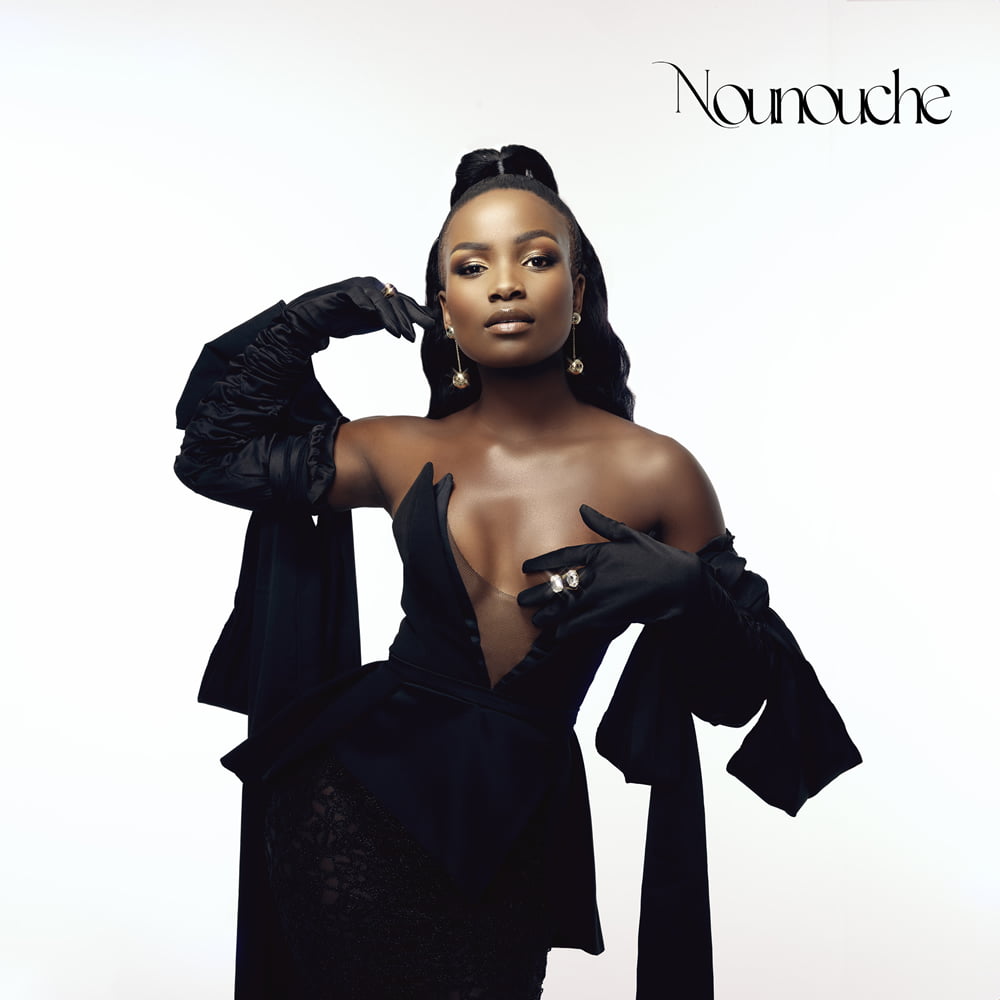
“When I was in primary school up to high school, I had an identity crisis because I understood what xenophobia was. Growing up, I saw how disrespectful people were towards my father, using derogatory terms…It made me very scared to admit who I was and to embrace my Ugandan heritage where I would tell people that I am Xhosa only, I even tried to find a Xhosa name so that I could blend in. I would make sure that I spoke Xhosa in certain social situations so that I wasn’t attacked. It was a situation where I felt that I was a victim of something but also the perpetrator because I denounced one heritage of who I am to find protection within the society I lived and grew up in. But, I also saw the pain it caused my father because of my actions, so now, I make it a point whenever people ask about my heritage and who I am, I am Melissa but I am Xhosa and Ugandan – it’s not something I want to hide anymore, I want to fully embrace it because then it opens up the conversations of heritage, xenophobia, about unity as Africans and really where we come from.”
While navigating the journey of embracing her African roots, Melissa encountered the additional challenge of addressing colourism. The discussion around her darker skin tone presented another formidable aspect she had to contend with.
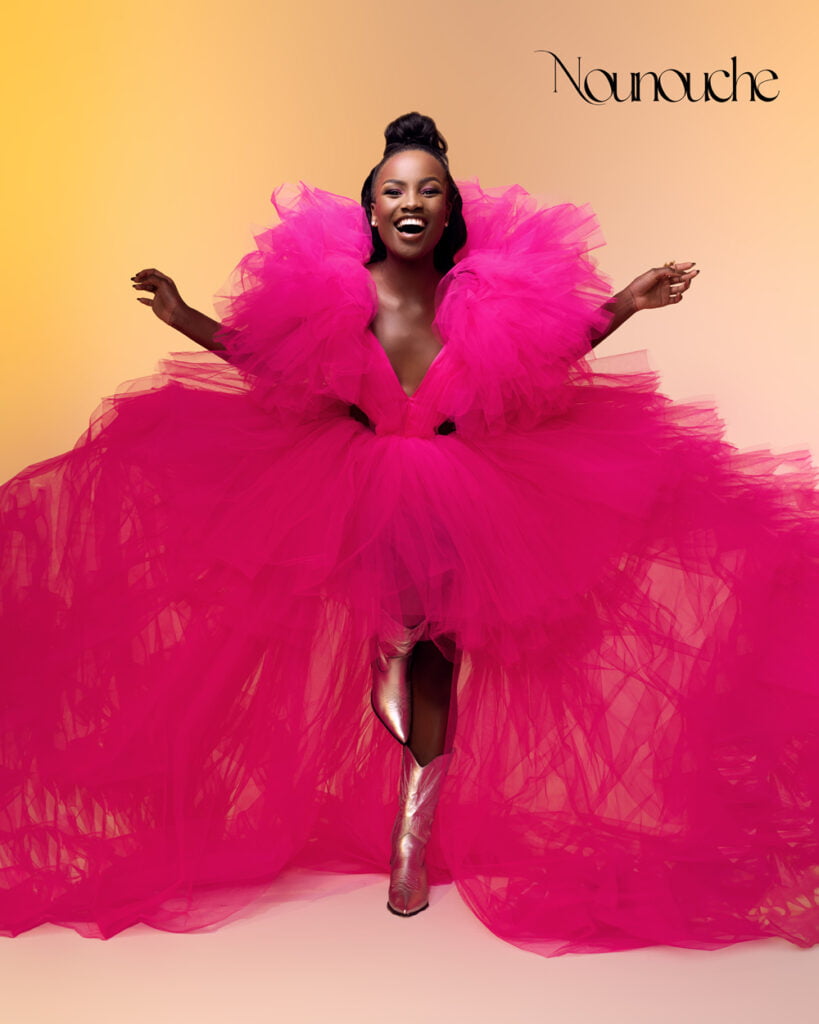
“Colourism is something that I have dealt with since I was a child. I think whether it is in your community, at home when you are playing with your friends, so when you go to school, that whole thing of the lighter skinned you are then the more beautiful you are – that was drilled into us to a point where you also wanted to be light-skinned. And I think that it was more challenging because my mother, is light-skinned and my older sister is as well, so I would look at them and think why I don’t look like them and I look more like my dad. Until we grew up, and thank God we did, I started looking at myself in the mirror and being confident in my skin. And once I started embracing all of my heritage and understanding where I come from, the colour of my skin or the shade of my melanin did not matter.”
Melissa continues to express that regrettably, despite the passage of time, Africans, or those with a darker skin tone, still find themselves in situations where mutual acceptance is not fully realised, “I have younger siblings and I see how they navigate life with regards to their skin colour. Yes, it may not be as in your face but what do you see when you turn the pages in a magazine, or on TV, who is being cast as a lead – is it darker or lighter skinned women? So, yes, I do think we have made progress but there is still colourism there. That’s why it’s important for me to exist in these spaces to show others that it is possible and it’s okay to be literally who you are, and it needs to be an ongoing lesson.”
Derived from her experiences, Melissa has set her focus on advocating for her mission to unite Africa and fostering discussions on xenophobia while challenging stereotypes. Although this wasn’t Melissa’s inaugural participation in the Miss SA competition, having entered four times to date, she underscores that this year she approached it with a more defined vision and purpose.
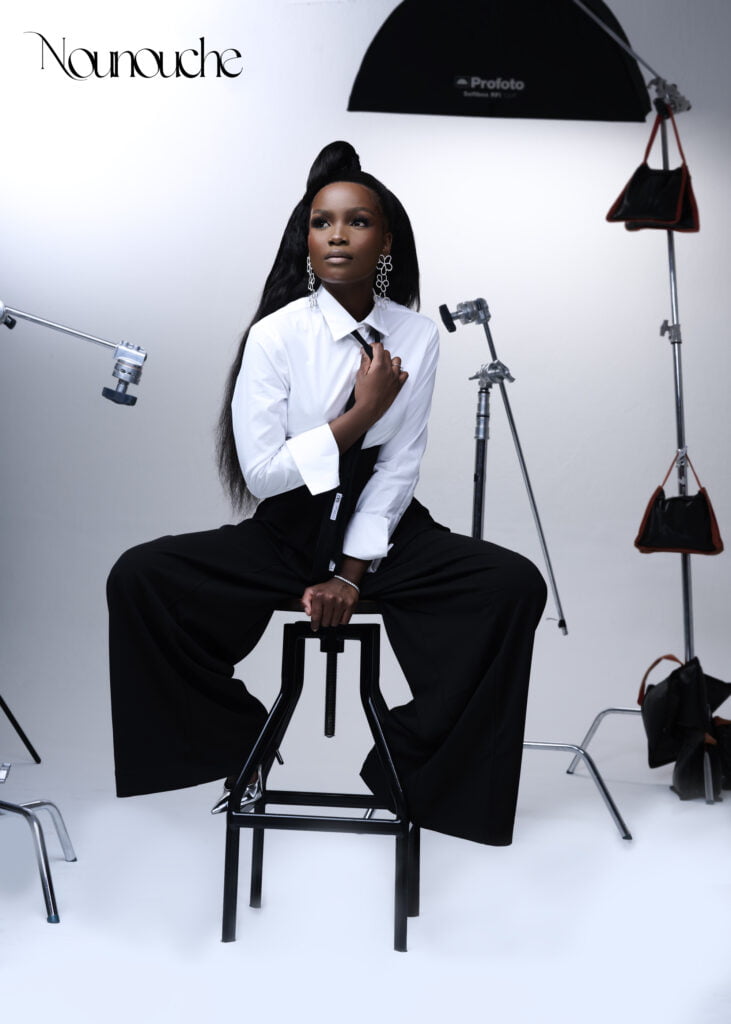
“This year’s Miss South Africa journey was a love letter to my father with everything that happened when we were growing up, I wanted to get up on a stage such as that and speak not only for him, but about him and our heritage. I also did it to show him that I have accepted who I am and who he is, is not a problem – it hasn’t ruined my life in any way, it has made it better and I wanted to stand up for him for a change. That’s why crown or no crown from Miss South Africa, I really do believe I fulfilled my purpose whereby my message was heard, it reached as many people as it could have, and I am forever grateful for that.”
While Melissa effectively conveyed her message on the Miss SA stage, she asserts that her mission persists post-pageant, as the filmmaker takes on the role of producing and co-directing her documentary.
“For the first time, I am producing and co-directing my own documentary, which is kind of scary! I stood on the Miss SA stage and said that I think the most important thing for us as Africans is to tell our own stories because too many times we are told who we are, what to think, how to behave and most of the time it’s not very positive things and I think we need to take control of our narrative, that’s important. And I wanted to start with that, saying let me produce a documentary, let me have my own say and have something to add to the narrative. That’s the biggest thing that I am busy with right now and hoping to launch before the end of this year – I am crossing my fingers. So, Chosi-Chosi is becoming a real thing. I remember after Miss SA everyone started hash-tagging Chosi-Chosi and that’s where I started this. Storytelling has always been a big part of my life, of who I am, and I love doing it!”
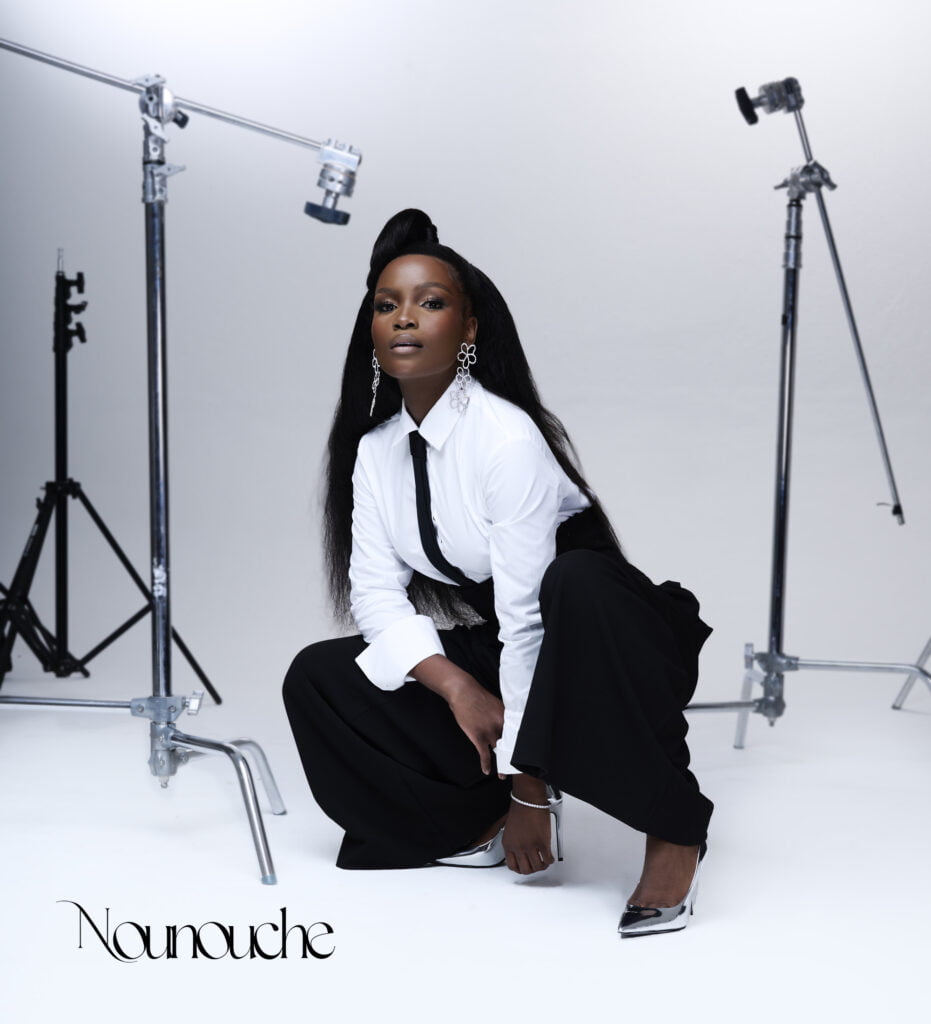
In eager anticipation of Melissa’s documentary release, her narrative of pioneering change and empowering the younger generation adds another layer to her overarching purpose.
“During the Miss SA pageant and amongst the contestants, we had a sense of unity and a sisterhood bond that I want to use out in the world and society. I want the younger ones to know that no one knows you better than you, no one can tell you who you are, no one can try to shape who you are because you know you better, so trust that!”
May Melissa’s positive influence persist, encouraging Africans to come together in solidarity and embrace mutual acceptance.
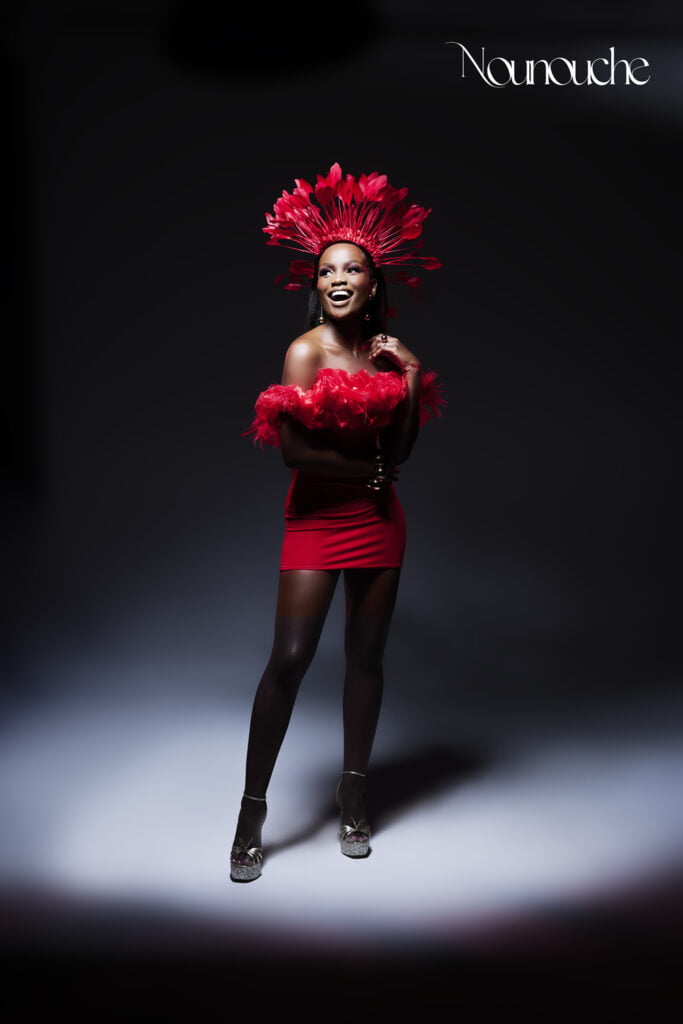
CREDITS:
Cover star: @Melissa
Cover story: @CelineAbrahams
Editor-in-Chief & Producer: @bonniemeslane
Managing Editor: @sesetuh
Photographer: @king_henry_iiv of RTC Studios
Creative Direction: @kgosilesego & @BonnieMeslane
Makeup: @noniubuntu
Hair: @zethu
Wardrobe & Styling: @advicebykgosilesego
Wardrobe Assistant: @lolakyle_
Photography team: RTC Studios
Lighting Director: @Khotso Tsaagane
Digitech: @Davidblaq
Assistant: Tshepo Zitha
Graphic Design: @adekunleowolabi
Social Media Manager: @_uthandok
Videography: Michael Dlamini
Wardrobe credit:
Silver cowboy boots: @europaart
Hot pink tulle high-low gown: @rentadressjhb


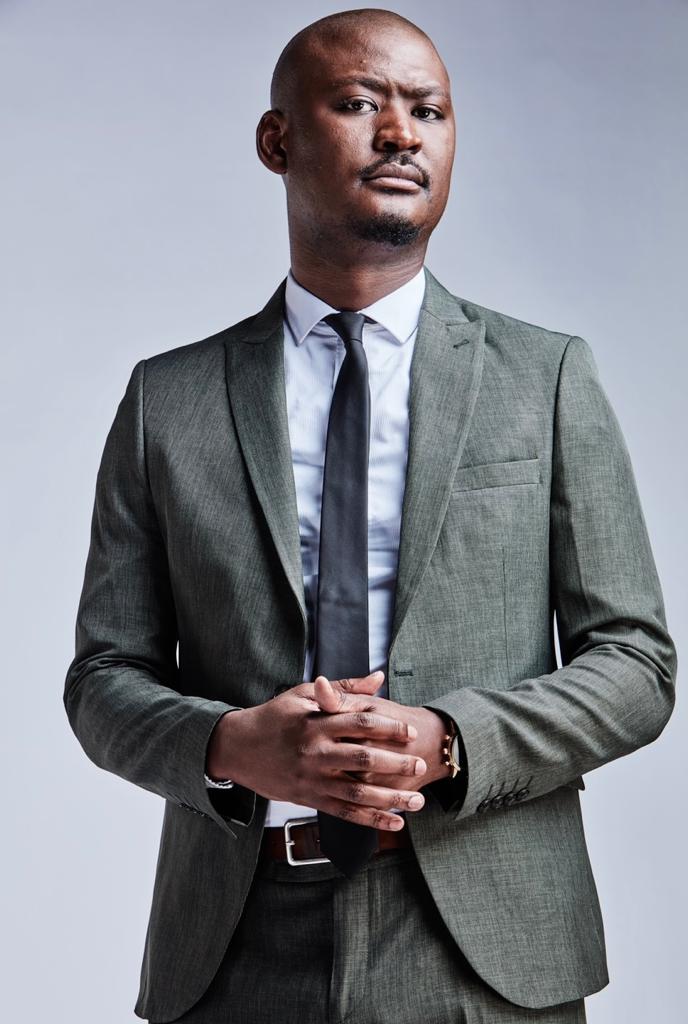
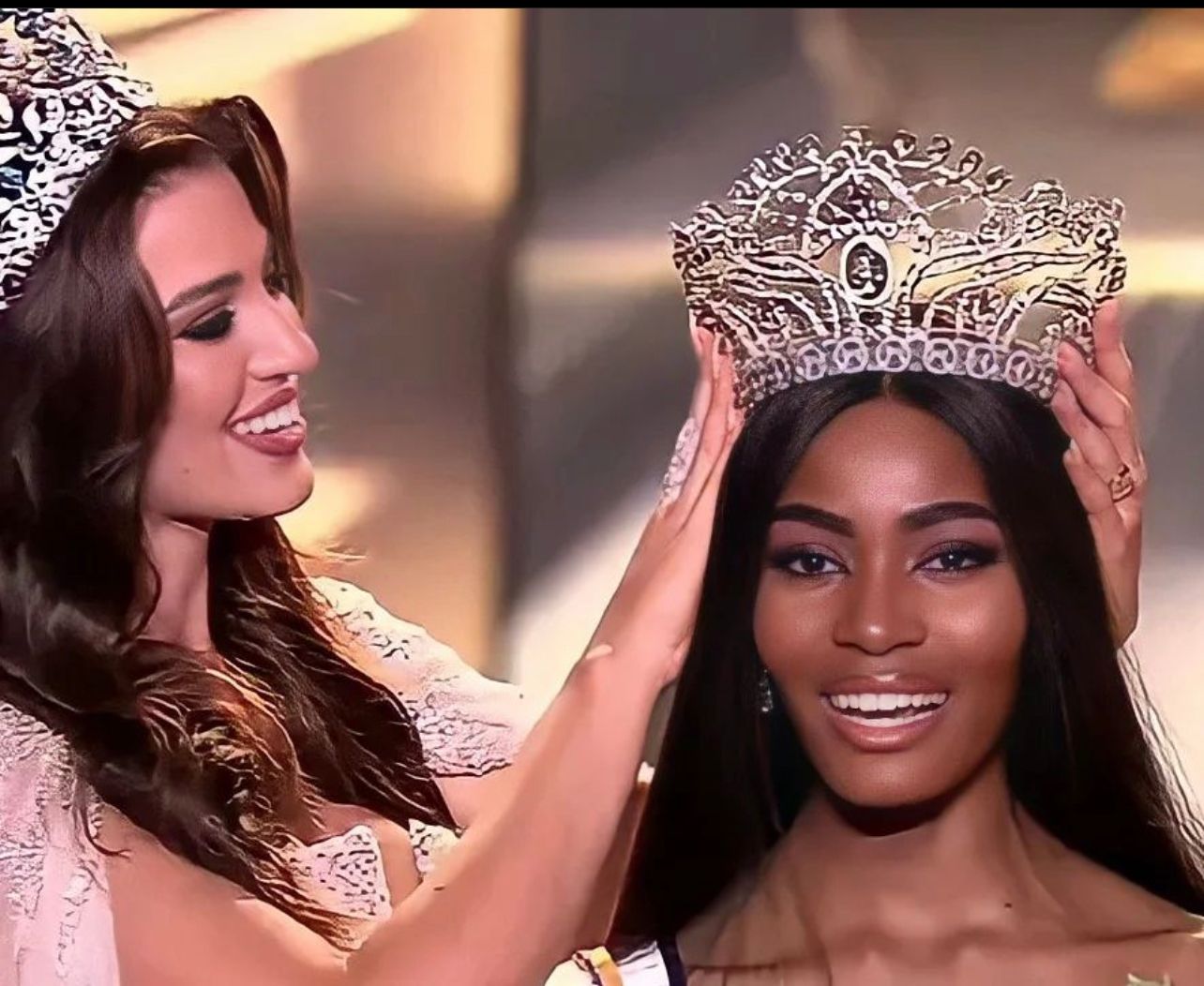
Pingback: 5 things to know about Miss South Africa’s Melissa Nayimuli – Forsething
Pingback: 5 things to know about Miss South Africa’s Melissa Nayimuli – Fantazia
Pingback: 5 things to know about Miss South Africa’s Melissa Nayimuli – Bundlezy
Pingback: 5 things to know about Miss South Africa’s Melissa Nayimuli – zaga Zingam
Pingback: 5 things to know about Miss South Africa’s Melissa Nayimuli – Posopolis
Pingback: Miss Universe SA’s Melissa Nayimuli trolled over Ugandan roots – Hamara media Fun
Pingback: Miss Universe SA’s Melissa Nayimuli trolled over Ugandan roots – Forsething
Pingback: Miss Universe SA’s Melissa Nayimuli trolled over Ugandan roots – Fantazia
Pingback: Miss Universe SA’s Melissa Nayimuli trolled over Ugandan roots – Posopolis